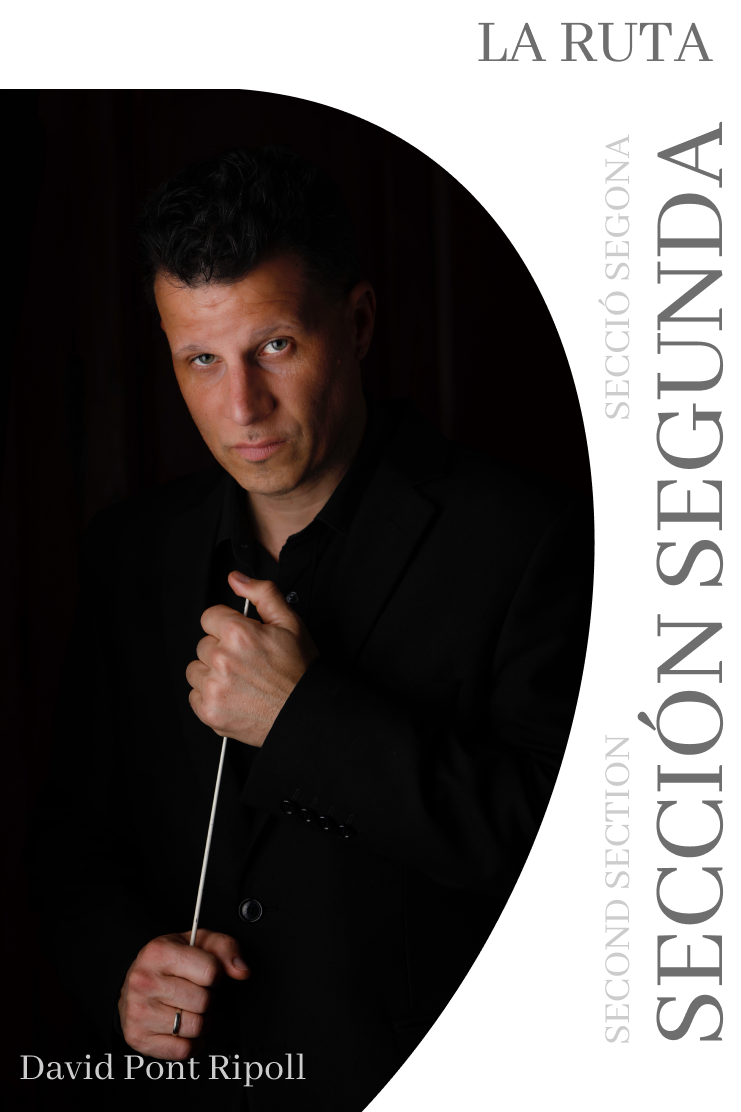The groups participating in the Second Section of the International Wind Band Contest «City of Valencia» 2025 will have to perform the score “La Ruta” by David Pont Ripoll as a compulsory piece.
BIOGRAPHY
David has been a trombone teacher at the Valencia Municipal Symphonic Band since 2008, and is also a member of the Art of Brass Valencia quintet.
He has been a member of the Madrid Symphony Orchestra and has received several international awards in performance competitions. He has recorded the album “Pont de colors” for solo trombone and various chamber ensembles.
As a conductor he has obtained 4 first prizes and two honourable mentions in various competitions, highlighting in his role as composer the first prize obtained in the competition of the city of Agost (Alicante), first prize in the composition competition of El Verger (Alicante) and finalist on both occasions in the competition of La Nucía (Alicante).
His music has been premiered by the Valencia Municipal Symphonic Band, RTVE Orchestra, by soloist teachers of the National Orchestra of Spain and the Valencia Orchestra.
COMPULSORY PIECE: «LA RUTA»
La Ruta, short for “La Ruta del Bakalao or Ruta Destroy” was a countercultural movement born in Valencia, which meant the largest clubbing movement in the history of Spain, and which marked several generations in their way of understanding leisure, and even life. It spans from the late 70s to the late 90s.
La Ruta was made up of several discotheques or dance halls, separated by a few kilometers, specialized in different types of music and which divided the public by time and taste. You could be “partying” (that’s what going on the route was called) from Thursday night until Monday morning without interruption, and the atmosphere that reigned was one of total cordiality and “good vibes” (in this it was similar to the hippie movement).
Let us bear in mind that Spain was a young democracy, that there was hardly any regulation of leisure hours, that the youth felt that they were living in a brand new country, and that for the first time the different musical styles present in Europe for decades were entering Spain en masse. La Ruta, in fact, was the gateway to Spain for several bands, and Valencia would end up being a pioneering centre for the production of electronic music.
The end of La Ruta was marked by the degradation of the spirit that saw its birth. The appearance of drugs such as ecstasy or cocaine, the progressive loss of quality and musical variety, the massification and proliferation of venues with no other motivation than economics, caused La Ruta to become a space of violence, danger (especially on the roads) and death. The state would end up closing many of the venues, and La Ruta was stigmatised, forgetting what it meant at the beginning.
Today there is a movement that claims the importance that that movement had, for the good and for the bad, for all those who lived or were born at that time.

